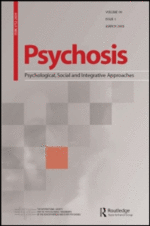The Tale of An Ordinary Little Girl
 The Tale of an Ordinary Little Girl won the 2010 Award for Best Paper in the Second Volume of Psychosis (Category B: Experienced-based articles).
The Tale of an Ordinary Little Girl won the 2010 Award for Best Paper in the Second Volume of Psychosis (Category B: Experienced-based articles).
Hearing voices, self-harm, eating “disorders” and dissociation, when viewed objectively, are frequently classified as symptoms of serious mental illnesses and disordered personalities that require treatment, eradication and cure.
This convenient societal solution to the complex problem of endemic childhood abuse requires that victims of abuse endure further insult to injury and become the problem to be dealt with.
By tracing the roots of so-called “symptoms” back to their origins in traumatic childhood events and having the courage to bear witness to painful truths, a more accurate, humane and respectful picture emerges which reframes “symptoms” as essential survival techniques.
The mark of a responsible society and responsive services is the willingness to share collective responsibility for these experiences, to honour them, support them and learn from them at all levels.

 cis of the most important recent research findings. In keeping with the ethos of this journal we offer a case study to illustrate the effectiveness of psychotherapy for trauma survivors with psychosis. We end with an appeal to collaborate with the users movement to take this agenda forward.
cis of the most important recent research findings. In keeping with the ethos of this journal we offer a case study to illustrate the effectiveness of psychotherapy for trauma survivors with psychosis. We end with an appeal to collaborate with the users movement to take this agenda forward.